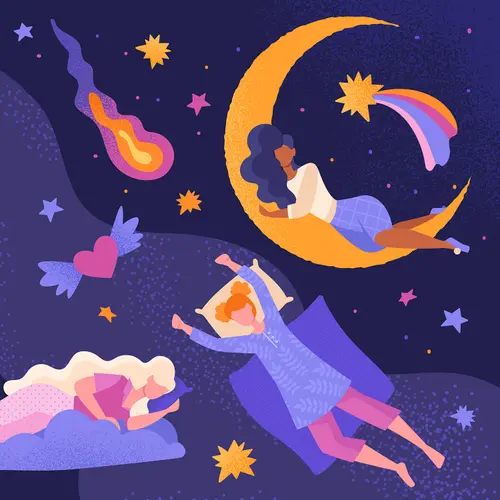Sleep deprivation hit Laurel hard for years before she realized what was wrong. In the middle of the night, she would wake up worrying about work, finances, and scheduling. Unable to fall back to sleep, she got out of bed and worked on her computer in the kitchen for hours while her husband and three children snoozed soundly upstairs.
Typically, she was logging only five or six hours of sleep a night. The 37-year-old from Marshfield, Mass., says the sleepless nights began after the birth of her youngest child and got worse after she was laid off during her maternity leave and started her own business in late 2007.
"My health and emotional well-being definitely suffered," she says, recalling that she often complained of stress, frequent colds, and joint pain (she was eventually diagnosed with arthritis). Her doctor told her too many sleepless nights were aggravating her symptoms and ordered her to stop working during the wee hours.
Women and Sleep Loss
Recent research shows that women like Laurel who report sleepless nights have a greater risk for health problems than men. Researchers at Duke University Medical Center, led by Edward Suarez, PhD, an associate professor in the department of psychiatry and behavioral sciences, found that women who reported unhealthy sleep are at an elevated risk for heart disease, type 2 diabetes, and depression.
"The differences are so remarkable," Suarez says. "Most studies have said that poor sleep is bad for overall health, but few studies have looked at these gender differences." Why are sleep-deprived women at higher risk? Hormones are the likely culprits, but it isn't clear how they work to protect men or leave women more vulnerable.
Laurel started getting more shut-eye by moving her bedtime up, taking walks during the day, and trying a sleep medication for a month to get her natural sleep cycle back on track. Her symptoms subsided as her sleep habits improved. "I'm in a much better state of mind now," she says.
How Sleep Loss Affects Your Health
A 2007 survey conducted by the National Sleep Foundation found that two-thirds of the women polled say they have had sleep problems a couple nights a week in the past month. That's not good -- unhealthy sleep patterns affect women's health and might even lead to a shorter life span than men's, says Suarez. Here are some of the downsides:
Hypertension. Women who toss and turn at night have higher levels than men of C-reactive protein and other signs linked to high blood pressure and heart disease.
Type 2 diabetes. Sleep deprivation can impair glucose tolerance and puts both women and men at risk for type 2 diabetes. Suarez's study shows that women who are poor sleepers are more likely to have higher levels of insulin and blood sugar than men.
Weight gain. Sleep loss has been linked to increased appetite, which can mean extra pounds and weight gain for both sexes. The Duke study found that women who are poor sleepers tended to be more overweight than men with sleep problems.
Depression. Not only does sleep loss impair thinking and memory, but, according to Suarez's research, it is associated with greater feelings of anger, hostility, and depression for women with disrupted sleep.

